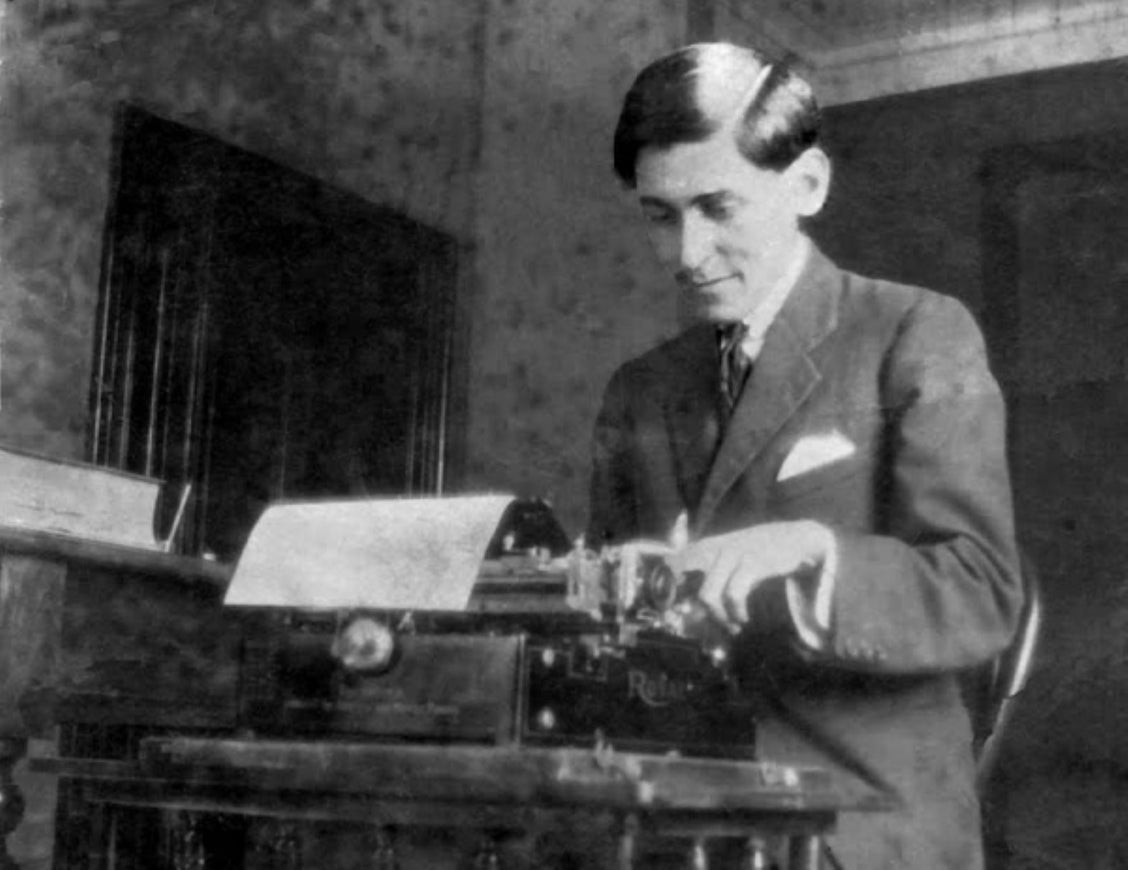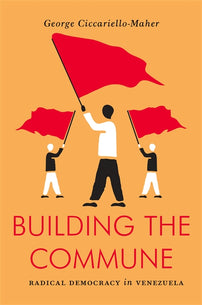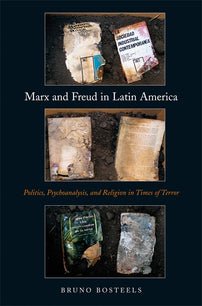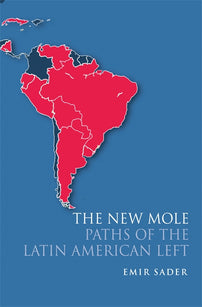Beyond Eurocentrism: on José Carlos Mariátegui
Aníbal Quijano, the renowned Peruvian scholar and one of the founders of Decolonial Studies, died last month at the age of 87. In this text, an introduction to José Carlos Mariátegui’s essential writings on socialist politics and culture, published in 1991 by Fondo de Cultura, Quijano underscores the powerful influence that Mariátegui held over the theoretical development of Latin American critical thought

The following is a lightly abridged and annotated version of Aníbal Quijano’s preface to Textos Básicos, a collection of José Carlos Mariátegui’s essential writings on socialist politics and culture, published in 1991 by Fondo de Cultura. Quijano, who died last month at the age of 87, was a renowned Peruvian scholar and one of the founders, along with Walter Mignolo, of Decolonial Studies. Here and in other writings, Quijano underscores the powerful influence that Mariátegui held over the theoretical development of Latin American critical thought, traceable in such ideas as the “coloniality of power” and the “geopolitics of knowledge” (by Quijano and Mignolo, respectively). Quijano places special emphasis on Mariátegui’s ability, as a committed socialist, to navigate between the cultural essentialism of nationalist figures such as Victor Raúl Haya de la Torre, and the competing abstract-universalist tendencies of the Comintern (which Quijano identifies in the text with Eurocentric rationalism).
Translated by Nicolas Allen
BEYOND EUROCENTRISM
The permanency of any writing depends on its capacity to produce –or perhaps better, unveil– an original meaning, often unforeseen, in the inner-recesses of time or with the periodic spasms of history. It is unlikely that this new meaning will be specific in nature, offering precise ideas, proposals or visions. More likely it will be a way of seeing, a perspective, a way to envision a cognitive relationship with the world.
The writings of José Carlos Mariátegui have endeavoured to do this: to move across time and establish for each new generation a unique relationship with the surrounding world, and with it, new readings. As I have suggested elsewhere, this approach is born of a specific mode of thought, a form of inquiry and knowledge that adheres in the fraught unity between two paradigms that dominant culture –i.e., Eurocentric modernity– has managed to cleave and then pose as irreconcilable opposites: logos and myth. But the tension between these two elements has been operative in Latin America since its inception; it is part of the region’s specific historicity, the original cultural imprint that has gradually permeated every aspect of art, narration, poetry, and the everyday imagination of its dominated peoples. It was only with Mariátegui that this tension became the central intellectual issue for an entire historical period.
I believe that one must go looking there for an explanation of the formidable intellectual autonomy that characterized Mariátegui, to be able to grasp his unique presence within the socialist and Marxist landscape of the early 20th century. Because, his exceptionality is of a type irreducible to a simple variation on pre-existing tendencies. And today, with the passage of time his legacy has been gradually distilled, so that we are now poised to receive a wholly alternative model from the historically Eurocentric ideas concerning intellectual research and social revolution. This matter in particular deserves closer examination.
We can only hope, at best, to offer a tentative outline here of the basic terms of this debate. First: the perspective implicit in Mariátegui’s thought should not be confused with simple heterodoxy, nor can it be explained away through appeal to the plurality of philosophical sources from which he drew inspiration, nor from his adherence to Sorelism, or by trying to connect his religious beliefs and his sociological and political ideas. Even with regard to the latter, which at first blush appears to anticipate –avant la lettre– the most radical versions of liberation theology, Mariátegui’s thought seems to share more in common with Walter Benjamin: the same unusual rationality, which has proven impervious to any and all reductionist operations; or better, the way in which, for both thinkers, revolution is conceived as a unique kind of redemption that never quite ventures beyond the familiar territory of history. A society of equality, solidarity, reciprocity, neighbourly love, both intellectuals imagined the materialization of these aspirations taking place in everyday social life without ever referring –nor depending on– any type of institutional religious power. In the case of Benjamin, we know that the deep undercurrents of his thought were leading back to Cabalistic practices and European philosophical history. But where can we locate Mariátegui’s well of inspiration? Today, still, this remains an open question.
The oligarchic creole culture that dominated Peru was clearly not a contemporary source of inspiration for Mariátegui. I would argue that the very same audacity and freedom –imaginative freedom, but also intellectual and emotional– that led this avowed Peruvian socialist militant to proclaim his religious faith and voice his support for Bergson and Sorel –in the face of Stalinist oversight, no less–, or his willingness to openly embrace the absurd, that all this cannot be reduced to an individual subjectivity. Better, the “Mariateguian” subjectivity in question was participating in a broader inter-subjective universe, constituted through the cultural processes typical of Latin America in the early 20th century: an alternative culture to oligarchic creole society. This alternative culture was nothing less than a distinct rationality, already being referred to by some in Mariátegui’s time as “Indo-American”, and whose true voice would only be heard decades later in the language spoken by Arguedas’ foxes.[1]
During his lifetime, Mariátegui was frequently accused of “Europeanism”. The basis for that allegation, levelled against him by Latin American intellectuals such as Victor Raúl Haya de la Torre, was that he had incorporated the category of class into his sociological studies of Peruvian society, and in doing so, had announced a socialist path that contemplated as its ultimate conclusion the necessity of revolution. Today, by contrast, European intellectuals tend to regard Mariátegui’s relationship with mysticism as essentially an ambiguous one, since his proposal, at its root, was to present socialism in the form of a myth so as to enlist the support of the indigenous peasants to the revolutionary cause. The Mariátegui scholar Robert Paris was fully aware of the close relation between logos and myth in the Peruvian’s intellectual project, and yet he construed the importance of this in its breaking with romantic aesthetics, rather than what it was: as an underlying epistemological problem. In the end, two disparate readings of Mariátegui –one Eurocentric the other Latin American– seem to converge on the tacit admission that socialism was not a real proposal –not rational– for Peruvian society at the time, overwhelmingly inhabited as it was by peasants and indigenous peoples.
Stalinism for its part had branded Mariátegui a “populist” and a “petit-bourgeoisie socialist”, for having suggested that the social organization of the indigenous community might provide the vitality needed for a socialist revolution in Peru.[2]
These accusations actually allow us to grasp the singular position that Mariátegui occupied within 20th century socialist debates, in Latin America and beyond. As present day readers can well appreciate, that originality resided in his deployment of categories– categories based in one or another Eurocentric version of modern rationality– that underwent a process of redefinition through their re-insertion into a radically different epistemological perspective than their original context: different, that is, from the European Marxists, and above all, international Stalinism. And this redefinition was not only, or not least, because such categories were “applied” –to use the jargon of the Marxist vulgate– to a different reality: their redefinition would operate equally on the European reality itself.
Latin American intellectuals in the 1920s and 30s could often be heard to argue, as a form of defence against the charge of Eurocentrism, that Europe and Latin America represented essentially divergent realities. This was, for example, the basic position of Haya de la Torre. But it was only starting with Mariátegui that one begins to see how that initial attitude was developing into something closer to an entire cognitive perspective. It still remains unclear whether that viewpoint was the product of a conscious elaboration. Whatever the case may be, it was not altogether systematic.
Unlike instrumental Eurocentric rationalism, the cognitive perspective advanced by Mariátegui embraces the social totality in all its multi-dimensionality. On this account, rational knowledge of the world would not preclude the possibility of also relating to the world poetically (and magically). Quite the contrary, the poetic mode would form part of that knowledge, since the world would be unintelligible or only partially intelligible, and only in a reductionist fashion, were it otherwise. This approach rejects any sort of evolutionist positivism or technocratism; in other words, excluding all that we recognize as the instrumental rationalism typifying the dominant mode of Eurocentric modernity. Hence, sixty years on, texts such as “Outline of the Economic Evolution”, “The Anti-Imperialist Point of View” or “Professor Canella” and “In Defence of Pure Nonsense” can be seen as retaining their potency because they capture Peruvian’s unique approach to knowledge, more so than any particular set of propositions advanced in those writings.
Today, we know that Marx himself through his studies of Russia had become aware of his own susceptibility to Eurocentrism, whereas he had initially proposed the general universalization of social scientific discoveries based in Western Europe. We also know now that this latter-day reflection did not produce a corresponding reconstruction of the German’s thought (T. Shanin et al. The Late Marx. The Russian Road. MR Press, 1984, New York). Nevertheless, Marx remains free of the charge of positivist evolutionism. It was only following his death that the latter paradigm began to gradually assume a larger role in the Marxist discourse, frequently parading as a dialectical concept of history. To this initial hybrid was added a second paradigm after World War Two: structuralism.
The European historical sequence, imposed as a universally valid model, was not alone responsible for the corrosion and mutilation of the potential for knowledge that was first unleashed through Marx. Better, it was the consequences of positivist evolutionism as applied to the social totality. Despite the aforementioned limitations, Marx had always insisted on the historical nature of that totality; it was only in the subsequent Marxist discourse that positivism foisted its organicist image on totality, just as structuralism would later impose its systemic image.
The very idea of a historical totality precludes that a single logic could preside over the constitution and historical process of a concrete social totality, since the latter is historically heterogeneous and cannot help but be comprised of various and disparate logics. Naturally, these logics are interrelated and do in fact produce a structure, organizing a shared logic that simultaneously allows for their continuity; however, this same movement cannot but be diverse and discontinuous. This is a connection among diverse, often antagonistic and frequently discontinuous elements existing in a combined structure that cannot by itself have any finality, meaning or sequence that would be given in advance of its own history. History is the result of the interaction among all these heterogeneous elements, always based, no matter the case, in the concrete action of concrete people. Social scientific knowledge can discern tendencies and, in that precise sense, possible directions that the tendencies might take. It can anticipate the theoretical conditions for their culmination; what it cannot do is guarantee a priori that it shall occur as forecasted. Nor is it possible to attribute outright the same tendencies and meaning to concrete historical experiences.
Since positivist evolutionism and structuralism construe social totality as a logical continuum –organic or systemic, respectively–, it appear as if their structures were themselves living entities, historical macro-subjects invested with their own foreseeable meaning, finality and development. There would exist on this account a History or Society for whom concrete individuals would be little more than the “bearers” of its corresponding historical logic.
Perhaps Marx did not fully free himself from the ambivalent position he took up with regards to totality. All the same, it was he who first insisted on the historical character of social totality. By way of contrast, the majority of his followers and faithful, whether knowingly or in full ignorance, adopted an organicist idea of social totality, particularly before World War Two, and afterwards, the structuralist idea with all its theoretical and political ramifications.
It would be pointless to go searching in Mariátegui’s work for anything like a systematic reflection on these issues. And yet, without this historical and dialectical conception of totality, or, likewise, a totalizing conception of history and society, his sociological analysis of Peruvian and Latin American social existence would be rendered unintelligible; or worse, indistinguishable from the dualism and evolutionism practiced by many so-called “Mariáteguists”. Equally so, his insistence on action –human, collective and individual– and the emphasis he placed on intentionality, consciousness, agency and heroism as the driving forces of history, all these considerations preclude offhand any recourse to a historical macro-subject, with its pre-defined path, stages and finalities that would stand outside of history.
It bears mentioning that Mariátegui’s sociological and political theses on Peru and Latin America were denounced in the 1929 meeting of the Third International, held in Buenos Aires; denounced by the most intellectually degraded –albeit, politically powerful– version of historical “materialism” and socialism: Stalinism. And less than a year later, shortly after the death of the Amauta [TN: a common nickname attached to Mariátegui], the emerging phenomenon of “Amautismo” was quickly entombed as well. Despite everything, Mariátegui’s influence would persist just as Stalinism and the Eurocentric version of Marx’s legacy began to fall by the wayside, and the last bastions of “Western” rationalism started to falter. Or were those not the same versions that Mariátegui himself had rejected as “depthless positivism” and “cowardly evolutionism”?
The “historical materialism” that “actually existing socialism” espoused had little in common with the materialist perspective of history that guided Mariátegui in his sociological discoveries.
“INDO-AMERICAN SOCIALISM”
With the fall of the wall, a form of power characterized by bureaucratic despotism likewise collapsed. All during the historical formulation and consolidation of that paradigm, the organicist idea of the social totality, and with it, positivist evolutionism, exercised a preponderant role. Without a cognizance of that particular conception of totality, it would be impossible to understand the “democratic centralism” that presided over the history of the Bolshevik party; nor the “monolithic unity” the organization assumed after it took power; nor the privileged legal status that the organization enjoyed over the newly formed state; nor the virtually absolute control of the new state in the hands of party members; nor the total nationalization of resources; nor the control under the party-state of all formal institutions, including the everyday life of the population, up to and including its artistic imagination, as codified by Zhdanovism. Likewise, without evolutionism, one could hardly explain the imposition of the universal doctrine of the five stages of production, or that the socialist revolution should have pre-defined stages, irrespective of where and when it took place.
Nowhere in Mariátegui’s writings is there any explicit discussion, much less a systematic treatment, of these specific issues. This omission is itself surprising, if one considers that the better part of his work was produced during that crucial decade, the 1920s, in which both inside and outside Russia these problems were subject to furious debate and crucial decisions, with decisive consequences for the socialist movement and the Third International. And yet, perhaps this was not so surprising either, considering the amount of time Mariátegui had dedicated to his own research and to the socialist critique of Peruvian and Latin American society, and in such a short lifespan, filled with so many adversities.[3] Equally important, for many the aura surrounding the Russian Revolution had managed to conceal the true face of Stalinism. The exact nature of that regime would only become evident with the Moscow trials, never reaching Mariátegui during his lifetime.
In any case, the general course of Mariátegui’s reflection tended to move against the grain of Stalinism. The Peruvian never hesitated to advance his own perspectives and proposals, resisting the constant pressure of Stalinist leadership in the Third International, both in Russia and the Latin American Bureau, at precisely the same moment that said organization had granted admission to Mariátegui’s Socialist Party of Peru.[4]
Bureaucratic despotism had taken shape by appropriating the very same worker institutions that had been established during the revolution against the Tsar, the institutions originally meant to control the immediate and direct conditions of the workers’ social existence. It was imposed by supressing the social and political sectors that battled for the continuance of those institutions, as in Kronstadt. Finally, it was bureaucratic despotism that was consolidated through the organization of a new state apparatus, placed under control of the party apparatus. In other words, through the formation of a power structure that joined both apparatuses vis-à-vis the acting apparatchik: the state-party against the organization of the communes, and bureaucratic despotism against direct democracy, together formed an unprecedented edifice of power.
Given that Mariátegui’s insistence on the role played by the indigenous community in the course of socialist revolution in Peru and Latina America was simultaneous with the consolidation of bureaucratic despotism n Russia, his example today invites us to consider a series of previously neglected questions concerning the socialist revolution. Beyond the specific issues pertaining to indigenous peasants and agrarian problems, Mariátegui’s proposal also addressed the direct democracy that Russian workers had sought to build in their revolution against the Tsar. Therefore, Mariátegui’s proposal to adopt the denomination “Indo-American” as the form of socialism specific Latin America cannot be simply bracketed from these larger discussions. It was no accident that the issue of direct democracy would be repeatedly denounced by functionaries of the Comintern in Buenos Aires, and later by Miroshevski, the very same who alleged that Mariátegui’s line of thought was the descendant of Russian populism and the expression of “petit-bourgeois socialism”.
[1] José María Argueda’s posthumous 1971 novel The Fox From Up Above and the Fox From Down Below. The foxes in question refer to the mythological voices representing the duality of the Peruvian landscape: the coast and the mountains.
[2] This line was advanced by V. M. Miroshevsky, Soviet adviser to the Latin American Bureau of the Comintern.
[3] Mariátegui died at the age of 35, having been wheelchair-bound the last six years of his life.
[4] Mariátegui was founder and general secretary of the Peruvian Socialist Party, which would later become the Peruvian Communist Party.
[book-strip index="1" style="display"]

